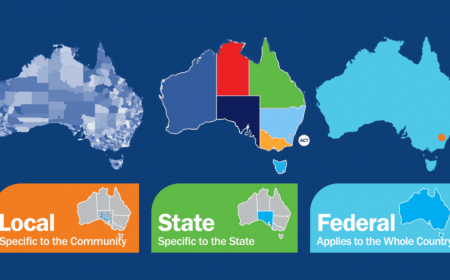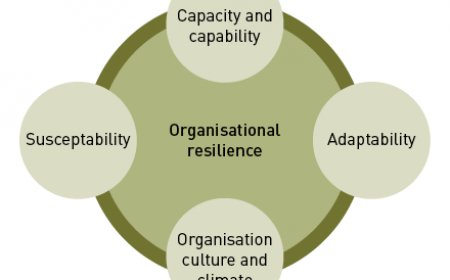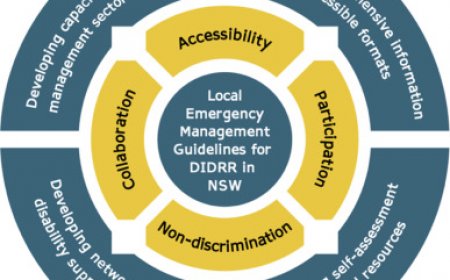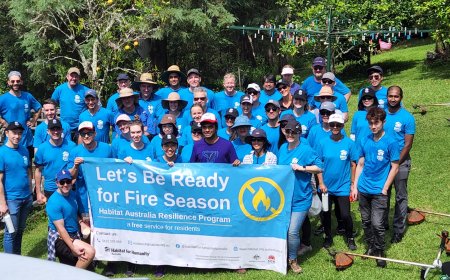Australia Ruby on Rails Developers: Whos Hiring?
Explore the growing demand for Ruby on Rails developers in Australia, including top hiring industries, essential skills, and career opportunities. Learn how to thrive in this dynamic field and stay ahead of industry trends.
In recent years, Ruby on Rails has emerged as a cornerstone technology for web development across industries in Australia , driven by its emphasis on simplicity, scalability, and rapid application deployment. This open-source framework, built on the Ruby programming language, has gained widespread adoption among startups, established enterprises, and government agencies seeking efficient solutions for building robust web applications. The framework’s "convention over configuration" philosophy allows developers to focus on innovation rather than repetitive setup tasks, making it an ideal choice for businesses aiming to accelerate their digital transformation.
The demand for Ruby on Rails developers in Australia reflects the growing reliance on this technology to address complex business challenges. From e-commerce platforms and fintech applications to healthcare systems and educational tools, Ruby on Rails powers a diverse range of projects that require both flexibility and performance. Its compatibility with modern cloud infrastructures, such as AWS and Azure, further enhances its appeal, enabling seamless integration with scalable hosting solutions.
As the Australian tech ecosystem continues to expand, companies are increasingly prioritizing the recruitment of skilled Ruby on Rails developers to meet their evolving needs. Whether it’s building customer-facing applications or streamlining internal workflows, organizations recognize the value of leveraging Ruby on Rails to deliver high-quality, maintainable software. This article explores the current landscape of hiring trends, the roles available, and the factors driving demand for Ruby on Rails expertise in Australia.
Current Demand for Ruby on Rails Developers in Australia
The demand for Ruby on Rails developers in Australia is experiencing a significant surge, fueled by the framework’s versatility and alignment with the needs of modern businesses. According to recent industry reports, job postings for Ruby on Rails developers have increased by approximately 25% year-over-year , reflecting a growing recognition of the framework’s ability to streamline development processes and deliver scalable solutions. This trend is particularly evident in major tech hubs like Sydney, Melbourne, and Brisbane, where startups and established enterprises alike are competing to attract top-tier talent.
Several factors contribute to this heightened demand. First, the rise of e-commerce platforms has created a pressing need for developers who can build and maintain dynamic, user-friendly websites capable of handling high traffic volumes. Companies like Catch.com.au and Kogan rely heavily on Ruby on Rails to power their online stores, ensuring seamless shopping experiences for millions of customers. Similarly, the fintech sector has embraced Ruby on Rails for its ability to integrate with APIs and handle complex financial transactions securely. Startups such as Afterpay and Zip Co have leveraged the framework to scale rapidly while maintaining robust performance.
Another key driver of demand is the increasing adoption of SaaS (Software as a Service) solutions across industries. Businesses are turning to Ruby on Rails to develop customizable, cloud-based applications that cater to diverse client needs. For instance, companies offering project management tools, CRM systems, and HR platforms often rely on Ruby on Rails for its modular architecture and ease of deployment. Additionally, the framework’s compatibility with DevOps practices and CI/CD pipelines makes it a preferred choice for organizations prioritizing agile development methodologies.
Despite the growing demand, there remains a notable shortage of skilled Ruby on Rails developers in Australia. This gap is exacerbated by the competitive nature of the tech job market, where developers with expertise in multiple frameworks and languages command higher salaries and greater bargaining power. Employers are responding by offering attractive incentives, such as remote work options, professional development opportunities, and equity stakes, to secure top talent. As the demand for Ruby on Rails continues to grow, bridging this skills gap will be critical for sustaining innovation and meeting the needs of Australia’s digital economy.
Industries Actively Hiring Ruby on Rails Developers
The adoption of Ruby on Rails spans a wide array of industries in Australia, each leveraging the framework’s capabilities to drive innovation and operational efficiency. Among the most prominent sectors actively hiring Ruby on Rails developers are e-commerce , fintech , and healthcare , all of which rely on the framework’s scalability, security, and rapid development features to meet their unique challenges.
In the e-commerce sector, Ruby on Rails has become a go-to solution for building platforms that support high transaction volumes and personalized user experiences. Leading Australian retailers like Catch.com.au and THE ICONIC utilize Ruby on Rails to manage their vast product catalogs, process payments securely, and optimize customer interactions. The framework’s ability to integrate seamlessly with third-party services, such as payment gateways and logistics providers, makes it indispensable for e-commerce businesses aiming to scale efficiently. Additionally, its modular architecture allows for easy customization, enabling companies to adapt quickly to changing market demands and consumer preferences.
The fintech industry is another major recruiter of Ruby on Rails developers, driven by the framework’s capacity to handle sensitive financial data and complex transactions with precision. Startups like Afterpay and Zip Co have built their platforms on Ruby on Rails, capitalizing on its robust security features and API integration capabilities to offer innovative payment solutions. The framework’s agility also supports the rapid iteration required in the fast-paced fintech landscape, where companies must continuously refine their offerings to stay competitive. Furthermore, Ruby on Rails’ compatibility with cloud infrastructure ensures that these platforms can scale effortlessly to accommodate growing user bases.
In the healthcare sector, Ruby on Rails is increasingly being used to develop applications that improve patient care and streamline administrative processes. Organizations like Medibank and HealthEngine leverage the framework to create secure, user-friendly portals for appointment scheduling, telemedicine, and medical record management. Ruby on Rails’ emphasis on clean code and maintainability aligns well with the stringent regulatory requirements of the healthcare industry, ensuring compliance with privacy laws such as the Privacy Act 1988 . Moreover, its ability to integrate with data analytics tools enables healthcare providers to derive actionable insights from large datasets, enhancing decision-making and patient outcomes.
These industries exemplify the versatility of Ruby on Rails, demonstrating its ability to address diverse challenges while delivering reliable, high-performance solutions. As more organizations recognize the framework’s potential, the demand for skilled developers in these sectors is expected to continue its upward trajectory.
Key Skills and Qualifications for Ruby on Rails Developers
To thrive in the competitive landscape of Ruby on Rails development in Australia, candidates must possess a robust combination of technical expertise, soft skills, and industry-specific knowledge. At the core of these requirements is proficiency in Ruby programming and a deep understanding of the Rails framework . Employers typically seek developers who are adept at writing clean, efficient code and can leverage Rails’ conventions to build scalable applications. Familiarity with MVC (Model-View-Controller) architecture , ActiveRecord , and RESTful API design is essential, as these components form the backbone of most Ruby on Rails projects. Additionally, experience with database management systems like PostgreSQL or MySQL is highly valued, given the framework’s reliance on relational databases for data storage and retrieval.
Beyond technical competencies, employers prioritize candidates with strong problem-solving abilities and a commitment to continuous learning . The fast-evolving nature of technology demands that developers stay abreast of the latest updates to the Rails framework, as well as emerging tools and libraries within the Ruby ecosystem. Knowledge of front-end technologies such as HTML, CSS, JavaScript, and modern frameworks like React or Vue.js is often required, as many projects involve full-stack development. Proficiency in version control systems like Git and experience with test-driven development (TDD) methodologies further enhance a candidate’s appeal, ensuring they can contribute to collaborative, high-quality codebases.
Soft skills are equally critical in distinguishing top-tier Ruby on Rails developers. Strong communication skills enable developers to effectively collaborate with cross-functional teams, including designers, product managers, and stakeholders. The ability to translate technical concepts into layman’s terms is particularly valuable when working on client-facing projects or explaining complex solutions to non-technical audiences. Additionally, traits like adaptability , time management , and a proactive approach to troubleshooting are highly sought after, as they ensure developers can navigate the dynamic challenges of modern software development.
Industry-specific knowledge also plays a pivotal role in securing roles within certain sectors. For example, developers targeting positions in fintech should understand compliance requirements and security protocols, while those in healthcare must be familiar with regulations governing patient data privacy. Certifications in areas like cybersecurity or cloud computing (e.g., AWS Certified Developer) can further bolster a candidate’s qualifications, signaling a commitment to excellence and specialization.
By combining technical mastery with interpersonal strengths and domain expertise, Ruby on Rails developers can position themselves as invaluable assets to Australian employers, meeting the diverse demands of today’s tech-driven industries.
Top Companies Hiring Ruby on Rails Developers in Australia
Australia’s thriving tech ecosystem is home to numerous companies actively seeking Ruby on Rails developers to drive innovation and growth. Among the most prominent employers are Atlassian , Canva , and REA Group , each leveraging the framework’s capabilities to build cutting-edge solutions tailored to their respective industries.
Atlassian , a global leader in collaboration software, relies heavily on Ruby on Rails to power its suite of tools, including Jira and Confluence . The company values the framework’s ability to support rapid development cycles and seamless integration with other technologies, enabling it to deliver scalable, enterprise-grade solutions. Atlassian’s commitment to fostering a culture of innovation and continuous improvement makes it an attractive destination for Ruby on Rails developers seeking challenging and impactful roles. Employees benefit from opportunities to work on high-profile projects, access to cutting-edge tools, and a supportive environment that encourages professional growth.
Canva , the graphic design platform revolutionizing visual content creation, also utilizes Ruby on Rails to manage its backend infrastructure. The framework’s modularity and scalability align perfectly with Canva’s mission to democratize design, allowing the company to handle millions of users and assets efficiently. Known for its vibrant workplace culture, Canva offers developers perks such as flexible working arrangements, equity packages, and access to world-class training programs. The company’s emphasis on creativity and collaboration provides a stimulating environment for Ruby on Rails developers to push the boundaries of what’s possible in web development.
REA Group , a leading player in the real estate technology space, employs Ruby on Rails to power its flagship platform, realestate.com.au , one of Australia’s most visited websites. The framework’s robust performance and ability to handle complex queries make it ideal for managing large datasets and delivering personalized user experiences. REA Group stands out for its focus on employee well-being and career development, offering benefits such as wellness programs, mentorship opportunities, and pathways to leadership roles. Developers at REA Group enjoy the chance to work on transformative projects that shape the future of property technology.
These companies exemplify the diverse opportunities available to Ruby on Rails developers in Australia. By joining organizations like Atlassian, Canva, or REA Group, developers can contribute to groundbreaking projects, work alongside talented teams, and enjoy perks that enhance both their professional and personal lives.
Freelance Opportunities for Ruby on Rails Developers
In addition to traditional employment, freelance opportunities present a lucrative avenue for Ruby on Rails developers in Australia, driven by the growing demand for specialized skills and flexible work arrangements. Platforms like Upwork , Toptal , and Freelancer.com have become popular hubs for connecting freelance developers with clients seeking expertise in Ruby on Rails. These platforms offer a wide range of projects, from building MVPs (Minimum Viable Products) for startups to maintaining and scaling existing applications for established businesses. Freelancers can choose short-term contracts or long-term engagements, allowing them to tailor their workload to their availability and preferences.
One of the key advantages of freelancing is the potential for higher earnings. Unlike salaried positions, freelance developers often charge hourly rates or project-based fees, which can significantly exceed standard wages. For instance, experienced Ruby on Rails freelancers on platforms like Toptal command rates upwards of $100 per hour , reflecting the premium placed on their expertise. Additionally, freelancers have the freedom to negotiate terms, select projects that align with their interests, and work with clients across various industries, from e-commerce to education.
Remote work opportunities further enhance the appeal of freelancing for Ruby on Rails developers. With the rise of distributed teams and digital collaboration tools, many Australian freelancers secure contracts with international clients, expanding their reach and diversifying their portfolios. This global exposure not only boosts earning potential but also fosters professional growth by exposing developers to different coding standards, project management methodologies, and cultural perspectives. Moreover, freelancers benefit from the flexibility to work from anywhere, whether it’s a home office in Sydney or a co-working space in Melbourne.
While freelancing offers numerous advantages, it also requires discipline and strategic planning. Developers must invest time in building a strong portfolio, cultivating client relationships, and managing administrative tasks like invoicing and taxes. However, for those willing to embrace the challenges, freelancing provides unparalleled autonomy and financial rewards, making it an attractive option for Ruby on Rails developers in Australia.
Challenges Faced by Ruby on Rails Developers in Australia
Despite the growing demand for Ruby on Rails developers in Australia, professionals in this field encounter several challenges that can impact their career trajectory and job satisfaction. One of the primary hurdles is the competitive job market , which is characterized by a high concentration of skilled developers vying for limited positions. As companies increasingly prioritize candidates with niche expertise or extensive experience, junior developers and those transitioning into Ruby on Rails from other frameworks may find it difficult to secure roles. This competition is further intensified by the influx of international talent, particularly from regions with lower living costs, who are willing to accept remote positions at reduced rates.
Another significant challenge is the rapid evolution of technology , which necessitates continuous upskilling to remain relevant. While Ruby on Rails remains a popular framework, the tech industry’s shift toward newer technologies like Node.js , Django , and serverless architectures has led some organizations to explore alternatives. Developers must therefore balance mastering Ruby on Rails with acquiring proficiency in complementary tools and languages, such as React , GraphQL , and containerization platforms like Docker . This constant need for learning can be both time-consuming and financially burdensome, particularly for those balancing full-time jobs or freelance commitments.
Additionally, remote work dynamics present both opportunities and obstacles for Ruby on Rails developers. While remote work offers flexibility and access to global opportunities, it also introduces challenges related to communication, collaboration, and work-life balance. Developers working remotely may struggle to establish clear boundaries between professional and personal life, leading to burnout or decreased productivity. Furthermore, the lack of face-to-face interaction can hinder relationship-building with clients or team members, potentially impacting project outcomes and career advancement.
Addressing these challenges requires a proactive approach. Developers can enhance their competitiveness by building a strong online presence, contributing to open-source projects, and obtaining certifications in emerging technologies. Networking through platforms like LinkedIn and attending industry events can also help forge valuable connections. By staying adaptable and strategically navigating the evolving landscape, Ruby on Rails developers can overcome these obstacles and thrive in Australia’s dynamic tech ecosystem.
Training and Development Resources for Ruby on Rails Developers
For Ruby on Rails developers in Australia, continuous learning and skill enhancement are essential to staying competitive in a rapidly evolving industry. Fortunately, a wealth of training and development resources are available to support developers at every stage of their careers. Online courses and bootcamps have emerged as popular avenues for acquiring new skills or deepening existing knowledge. Platforms like Udemy , Coursera , and Pluralsight offer comprehensive Ruby on Rails courses, ranging from beginner-friendly introductions to advanced topics like performance optimization and API integration. These platforms provide flexibility, allowing developers to learn at their own pace while accessing high-quality content created by industry experts.
Bootcamps, such as those offered by General Assembly and Coder Academy , provide immersive, hands-on training designed to equip participants with practical skills in a short timeframe. These programs often include real-world projects, mentorship, and career support, making them an excellent choice for individuals looking to transition into Ruby on Rails development or accelerate their career progression. Additionally, local meetups and hackathons organized by communities like Ruby Australia and Rails Girls foster collaboration and innovation, enabling developers to network, share knowledge, and tackle challenges collectively.
Formal education also plays a role in skill development, with universities and TAFEs offering courses in software engineering and web development. Institutions like the University of Melbourne and RMIT incorporate Ruby on Rails into their curricula, providing students with a strong theoretical foundation alongside practical experience. For those seeking specialized expertise, certifications in areas like DevOps , cloud computing , or cybersecurity can complement Ruby on Rails proficiency, enhancing employability and opening doors to niche roles.
By leveraging these resources, Ruby on Rails developers can stay ahead of industry trends, expand their skill sets, and position themselves as valuable assets in Australia’s tech-driven economy.
Future Outlook for Ruby on Rails Developers in Australia
The future for Ruby on Rails developers in Australia appears promising, underpinned by sustained demand and the framework’s continued relevance in the tech landscape. Despite the emergence of newer technologies, Ruby on Rails remains a staple for businesses seeking reliable, scalable solutions, particularly in industries like e-commerce , fintech , and healthcare . Its robust ecosystem, active community support, and compatibility with modern tools ensure that it will remain a viable choice for web development in the foreseeable future. As companies increasingly prioritize digital transformation, the need for skilled Ruby on Rails developers is expected to grow, creating ample opportunities for professionals in this field.
Emerging trends such as the rise of microservices architecture and serverless computing are likely to influence how Ruby on Rails is utilized. Developers proficient in integrating Rails with these paradigms will be well-positioned to lead innovation in application design and deployment. Additionally, advancements in artificial intelligence and data analytics may see Ruby on Rails being leveraged to build platforms that incorporate machine learning models, further expanding its use cases. To capitalize on these trends, developers must adopt a forward-thinking mindset, embracing continuous learning and experimentation with complementary technologies.
The broader economic landscape also bodes well for Ruby on Rails developers. Australia’s commitment to fostering a digital economy, coupled with government initiatives to support tech startups and innovation, will likely drive increased investment in software development. This, in turn, will create a steady pipeline of projects requiring Ruby on Rails expertise. By staying adaptable and aligning their skills with industry demands, developers can look forward to a dynamic and rewarding career trajectory in the years to come.
Accessibility in Ruby on Rails Development
Ensuring accessibility is a critical responsibility for Ruby on Rails developers in Australia, as it directly impacts the inclusivity and usability of web applications for diverse audiences. Ruby on Rails provides a robust foundation for building accessible websites through its adherence to web standards and compatibility with assistive technologies. Developers can leverage Rails’ built-in features, such as ARIA (Accessible Rich Internet Applications) support and semantic HTML generation, to create interfaces that are perceivable, operable, and understandable for users with disabilities. For instance, Rails’ form helpers automatically generate accessible markup, reducing the risk of errors that could hinder navigation for screen readers or keyboard-only users.
Additionally, the Ruby on Rails community emphasizes best practices for accessibility, offering a wealth of resources and tools to guide developers. Gems like axe-matchers and rails-accessibility simplify the process of testing and implementing accessibility features, ensuring compliance with guidelines such as the Web Content Accessibility Guidelines (WCAG) . These tools empower developers to identify and address potential barriers, such as insufficient color contrast or missing alt text for images, early in the development cycle. For Australian businesses and organizations required to adhere to accessibility legislation like the Disability Discrimination Act 1992 , these resources are invaluable in meeting legal obligations and fostering equitable access to online content.
However, achieving true accessibility requires more than just technical implementation; it demands a commitment to inclusive design principles. Developers must prioritize user-centered approaches, considering the needs of individuals with visual, auditory, motor, or cognitive impairments throughout the design and development process. By embedding accessibility into their workflows, Ruby on Rails developers can create applications that not only comply with standards but also provide meaningful and equitable experiences for all users.
How to Become a Successful Ruby on Rails Developer in Australia
Becoming a successful Ruby on Rails developer in Australia requires a strategic blend of technical expertise, networking, and adaptability to the evolving demands of the tech industry. To begin, aspiring developers should focus on mastering the fundamentals of Ruby programming and gaining a deep understanding of the Rails framework . This includes proficiency in MVC architecture , ActiveRecord , and RESTful API design , as well as familiarity with database management systems like PostgreSQL and front-end technologies such as JavaScript and React . Engaging in hands-on projects, contributing to open-source initiatives, or participating in hackathons can provide practical experience and help build a compelling portfolio.
Networking is another critical component of career success. Joining communities like Ruby Australia or attending local meetups and tech conferences allows developers to connect with peers, mentors, and potential employers. Platforms like LinkedIn can also be leveraged to showcase skills, share insights, and engage with industry leaders. Additionally, pursuing certifications in emerging technologies, such as DevOps or cloud computing , can differentiate candidates in a competitive job market.
Finally, staying adaptable and committed to lifelong learning is essential. The tech landscape evolves rapidly, and developers must continuously update their skills to remain relevant. By embracing these strategies, aspiring Ruby on Rails developers can position themselves for long-term success in Australia’s dynamic tech ecosystem.
Conclusion: Navigating Opportunities as a Ruby on Rails Developer in Australia
In conclusion, the landscape for Ruby on Rails developers in Australia is rich with opportunities, driven by the framework’s enduring relevance and the nation’s growing emphasis on digital innovation. Industries ranging from e-commerce and fintech to healthcare and real estate continue to rely on Ruby on Rails for its scalability, security, and rapid development capabilities. This widespread adoption underscores the critical role developers play in shaping the digital future of Australian businesses. However, success in this competitive field requires more than technical proficiency; it demands a commitment to continuous learning, adaptability to emerging trends, and active engagement with the broader tech community.
For aspiring and seasoned developers alike, the path to success involves mastering core skills, building a strong professional network, and staying attuned to industry shifts. By leveraging resources such as online courses, bootcamps, and local meetups, developers can enhance their expertise and remain at the forefront of technological advancements. Additionally, prioritizing accessibility and inclusive design ensures that their work not only meets technical standards but also serves diverse user needs. As Australia’s tech ecosystem continues to expand, Ruby on Rails developers who embrace these strategies will be well-equipped to thrive in a dynamic and rewarding career.
10 Frequently Asked Questions (FAQs)
-
What industries in Australia hire Ruby on Rails developers?
E-commerce, fintech, healthcare, real estate, and SaaS companies are among the top recruiters of Ruby on Rails developers. -
Is Ruby on Rails still in demand in 2023?
Yes, Ruby on Rails remains in demand due to its scalability, ease of use, and suitability for web applications. -
What skills are essential for Ruby on Rails developers?
Proficiency in Ruby programming, MVC architecture, RESTful APIs, database management, and front-end technologies like JavaScript. -
Which companies in Australia use Ruby on Rails?
Prominent companies include Atlassian, Canva, REA Group, Afterpay, and Kogan. -
Are there freelance opportunities for Ruby on Rails developers?
Yes, platforms like Upwork, Toptal, and Freelancer.com offer numerous freelance projects for Ruby on Rails developers. -
What challenges do Ruby on Rails developers face?
Challenges include a competitive job market, rapid technological changes, and adapting to remote work dynamics. -
How can I upskill as a Ruby on Rails developer?
Take online courses, attend bootcamps, participate in hackathons, and earn certifications in complementary technologies. -
What is the average salary for Ruby on Rails developers in Australia?
Salaries range from AUD 80,000 to AUD 150,000 annually, depending on experience and location. -
What tools can help with Ruby on Rails development?
Tools like Rails gems, Docker, Git, and testing frameworks like RSpec enhance productivity and code quality. -
How important is accessibility in Ruby on Rails development?
Accessibility is crucial for creating inclusive web applications and ensuring compliance with legal standards like the Disability Discrimination Act.
What's Your Reaction?
 Like
0
Like
0
 Dislike
0
Dislike
0
 Love
0
Love
0
 Funny
0
Funny
0
 Angry
0
Angry
0
 Sad
0
Sad
0
 Wow
0
Wow
0











































